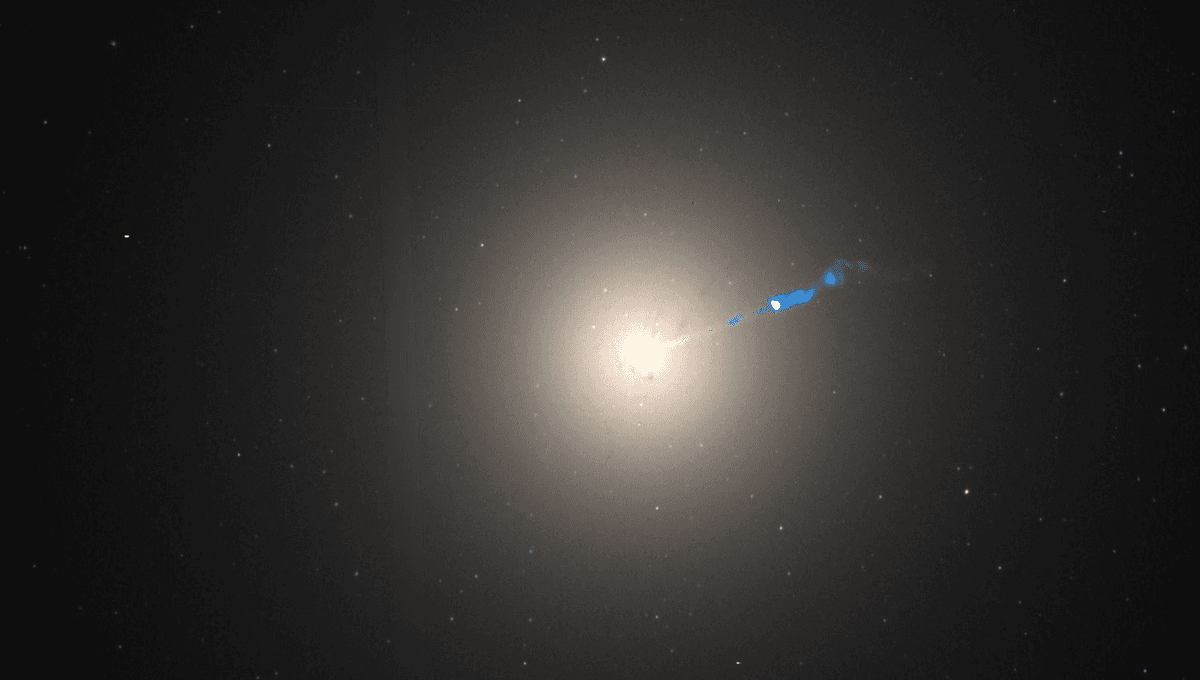
M87 is a relatively close elliptical galaxy and M87*, its supermassive black hole, was the first of these gargantuan objects to be photographed. The black hole is known for the release of a jet of material stretching for millions of light-years – and researchers believe that the jet is powered by theft. Its energy is stolen by the black hole.
Nothing escapes black holes, not even light. This is true and it is the very nature of what makes a black hole a black hole. But these objects sit in the universe and interact with it, through magnetism and gravity. There are mechanisms by which is it possible for black holes to lose energy. A famous one is Hawking radiation, the slow evaporation of black holes due to the formation of new particles at the edges. Then there is the Penrose mechanism. And then there is Electromagnetic Energy Extraction.
Due to its enormous gravitational pull, a rotating black hole like M87* drags spacetime along with it. Magnetic field lines are also dragged along, and their presence slows down the rotation. That loss in rotational energy could be used to power a jet.
Researchers built on the observations of M87* from the Event Horizon Telescope and used supercomputer simulation to establish a theoretical framework to test this idea. The magnetic field of the supermassive black hole gets twisted by the spin of such a massive object, creating ripe conditions, according to the study, for the jet to steal energy away from the black hole. And it is truly an enormous amount of energy.
“If you took the Earth, turned it all into TNT and blew it up 1,000 times a second for millions and millions of years, that’s the amount of energy that we’re getting out of M87,” Dr George Wong, from Princeton University, said in a statement.
The research does not categorically state that the jet is powered by the black hole, but they believe that current evidence is consistent with that scenario. Future observations, maybe with the proposed next-generation Event Horizon Telescope, should be able to say if this is the case or not.
“I think it’s extremely likely the black hole powers the jet, but we can’t prove it yet,” explained professor Alexandru Lupsasca, from Vanderbilt University, who won the 2024 New Horizons in Physics Prize from the Breakthrough Prize Foundation for his black hole research.
A paper describing the results is published in The Astrophysical Journal.
Source Link: The Jet Of M87* Might Be Stealing Energy From The Supermassive Black Hole